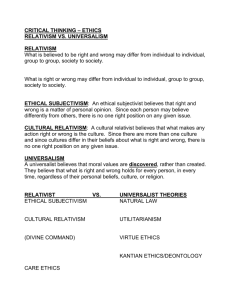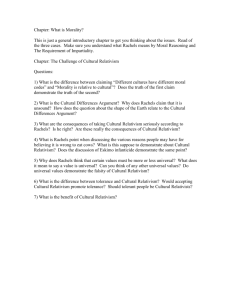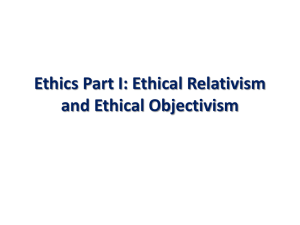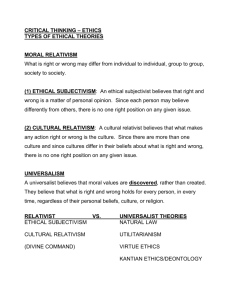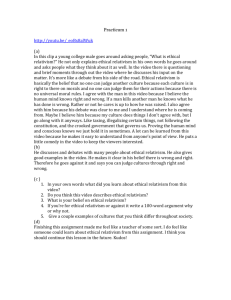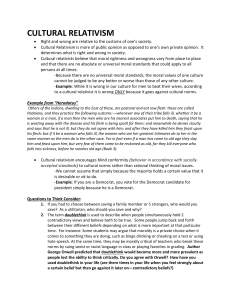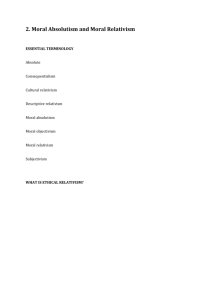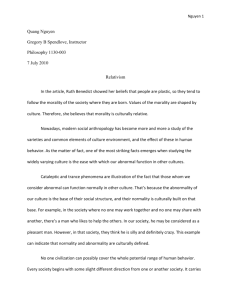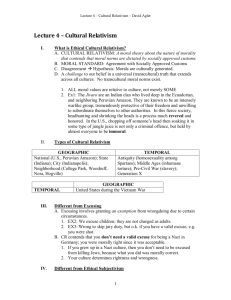Ethical 'Relativism'
advertisement
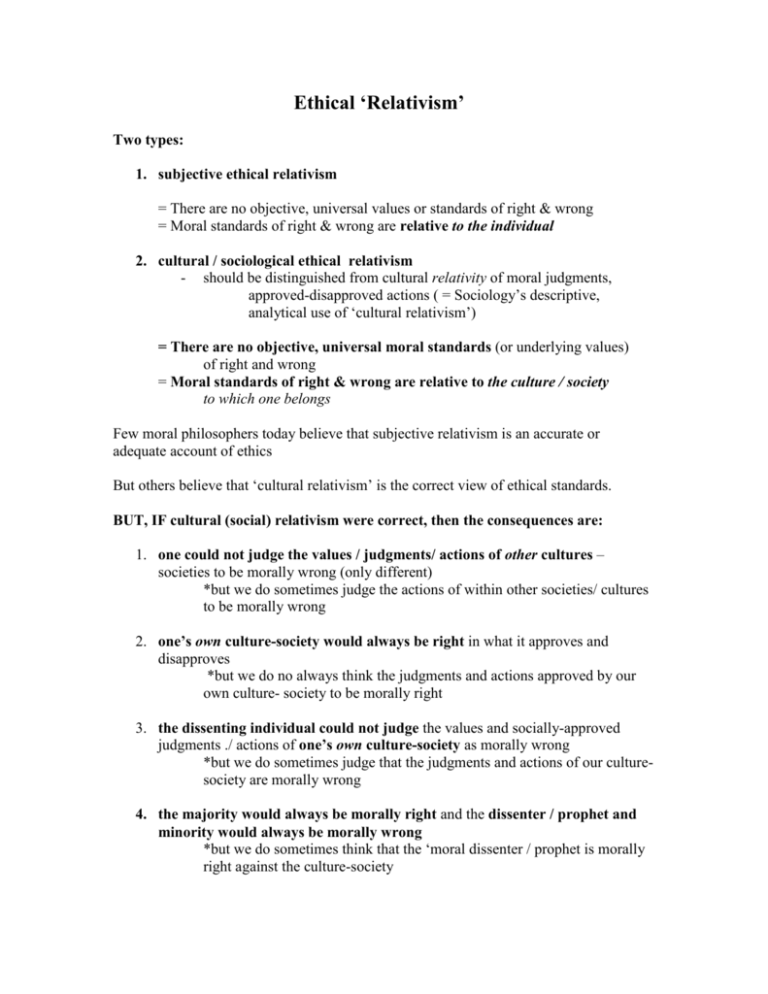
Ethical ‘Relativism’ Two types: 1. subjective ethical relativism = There are no objective, universal values or standards of right & wrong = Moral standards of right & wrong are relative to the individual 2. cultural / sociological ethical relativism - should be distinguished from cultural relativity of moral judgments, approved-disapproved actions ( = Sociology‟s descriptive, analytical use of „cultural relativism‟) = There are no objective, universal moral standards (or underlying values) of right and wrong = Moral standards of right & wrong are relative to the culture / society to which one belongs Few moral philosophers today believe that subjective relativism is an accurate or adequate account of ethics But others believe that „cultural relativism‟ is the correct view of ethical standards. BUT, IF cultural (social) relativism were correct, then the consequences are: 1. one could not judge the values / judgments/ actions of other cultures – societies to be morally wrong (only different) *but we do sometimes judge the actions of within other societies/ cultures to be morally wrong 2. one’s own culture-society would always be right in what it approves and disapproves *but we do no always think the judgments and actions approved by our own culture- society to be morally right 3. the dissenting individual could not judge the values and socially-approved judgments ./ actions of one’s own culture-society as morally wrong *but we do sometimes judge that the judgments and actions of our culturesociety are morally wrong 4. the majority would always be morally right and the dissenter / prophet and minority would always be morally wrong *but we do sometimes think that the „moral dissenter / prophet is morally right against the culture-society 5. one could not judge the past approved-disapproved of one‟s own societyculture as comparatively wrong or inferior to the present = there could be no such thing as moral progress within the history of a people *but we do claim that moral progress takes place within a group of people over time 6. There are no ‘universal human rights’ These unwelcome and implausible results do not entail the conclusion that cultural relativism is incorrect, but may well raise questions about the correctness of reducing moral right & wrong to cultural standards and dictates Flawed Arguments / Reasons why some persons affirm cultural relativism: 1. „cultural differences argument‟ requires acceptance of relativism *no amount of differences of belief about a matter entails that there is no truth of the matter 2. humility requires acceptance of relativism = it is hubris to think that “you / we” are right and “they” are wrong *humility requires „falliblism‟ and recognition of / openness to „pluralism‟ 3. “relativism requires tolerance” assumption *nothing in relativism requires or entails tolerance at the personal or social-cultural level. If a culture – society were to morally approve of / affirm intolerance, on what basis could the relativist object and claim that they were wrong or mistaken? *any connection between relativism and tolerance is psychological and cultural in character vs. logical 4. “tolerance requires relativism” assumption *someone who believes that there are objective, universal moral values / standards / truths and who is a falliblist and a pluralist will be committed to „optimum tolerance‟ 5. there is “no proof” that objective, universal ethical values and standard exist, therefore one must accept relativism *‟proof‟ (evidence / argument that compels an inquirer to a conclusion, or that will convince a committed skeptic) is not to be had for any major philosophical issue! 6. (false) assumption that good arguments cannot be made for objective, universal human values / moral standards / principles.


